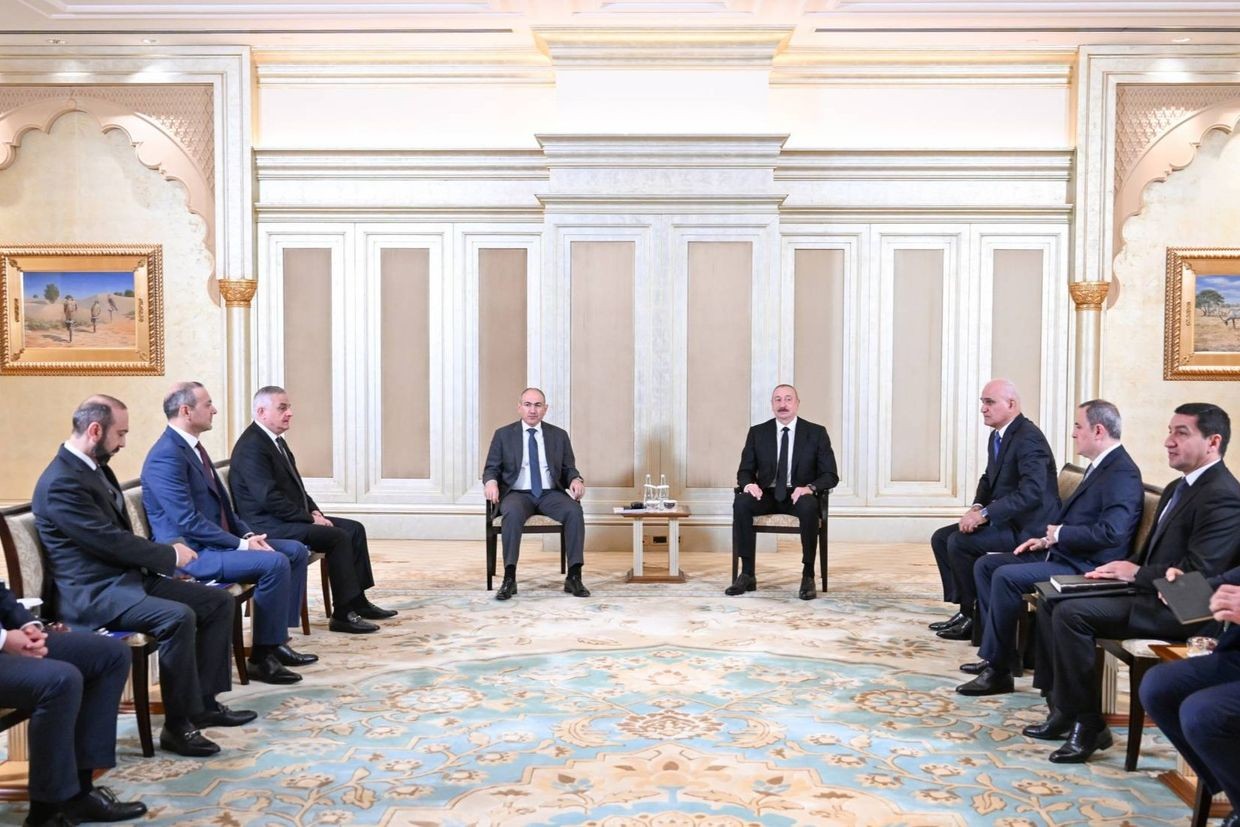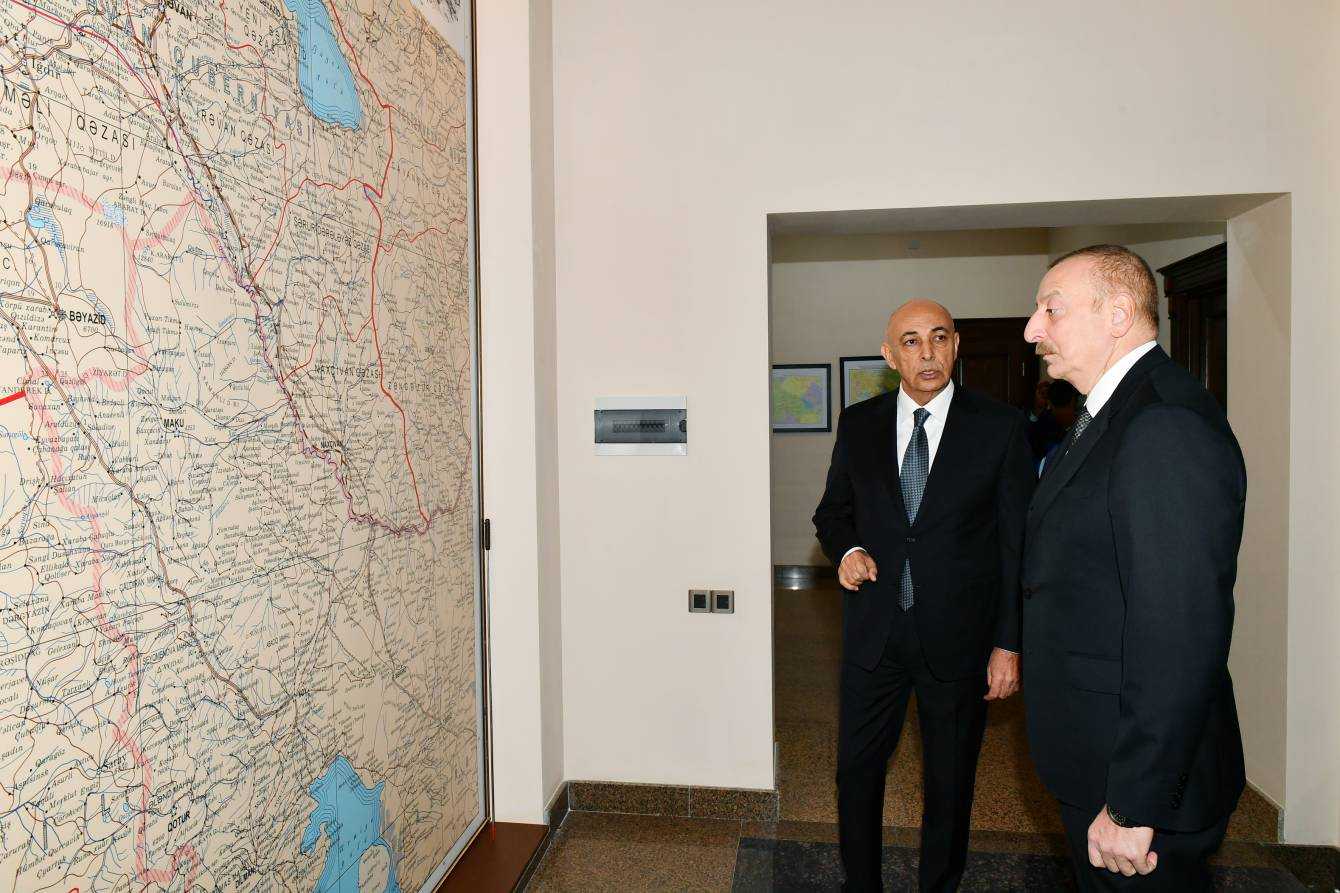
Armenian Prime Minister Nikol Pashinyan and Azerbaijani President Ilham Aliyev held direct peace talks in Abu Dhabi on Thursday.
The meeting between the two leaders and their delegations took place on Thursday.
Their meeting appeared to last around five hours, following which Azerbaijan and Armenia’s respective foreign ministries published identical statements which did not offer many details as to what the delegations discussed.
Both statements said that Armenia and Azerbaijan ‘confirmed that bilateral negotiations represent the most efficient format to address all issues concerning the normalisation process’.
Pashinyan and Aliyev also reportedly instructed their respective border delimitation state commissions to continue work on delineating the Armenia–Azerbaijan border.
Azerbaijani pro-government media outlet APA reported that the meeting was held in a ‘very constructive atmosphere’, and that the two countries also discussed opening and a corridor connecting Azerbaijan to its exclave of Nakhchivan through Armenia, and initiating the peace agreement.
Russian state news agency TASS cited a source as saying that the meeting aimed at ‘resolving contradictions surrounding the peace treaty in order to sign it by the end of the year’.
Armenia and Azerbaijan agreed on the terms of the peace deal on 13 March, but have not announced the terms of the deal.
However, the agreement is believed to include major concessions from Armenia, including the removal of EU monitors from its border with Azerbaijan and the dropping of lawsuits in international courts.
However, despite agreeing on the terms of the agreement, Azerbaijan and Armenia have continued to accuse each other of dozens of ceasefire violations since.
Russia sidelined?
As the two leaders met in Abu Dhabi, Kremlin spokesperson Dimitry Peskov said that Moscow ‘definitely welcomed’ direct dialogue between Armenia and Azerbaijan.
Long considered to be the primary mediator in talks between Armenia and Azerbaijan, Russia has been effectively sidelined as its influence in the region continues to wane — particularly as its diplomatic relations with both Armenia and Azerbaijan continue to deteriorate.
Armenia–Russian relations have suffered drastically following the end of the Second Nagorno-Karabakh War, with Yerevan accusing Moscow and its military alliance, the Collective Security Treaty Organisation, of failing to come to its defence in the face of Azerbaijani attacks in 2021 and 2022.
Azerbaijan’s relations with Russia began souring following an Azerbaijan Airlines flight from Baku to Grozny that crashed near the Kazakh city of Aktau on 25 December 2024, killing 38 people.
Russia has claimed that the plane was rerouted to Aktau after experiencing an emergency situation after striking birds mid-flight and due to foggy conditions in Grozny. Azerbaijan and much of the international community have strongly disputed this narrative, with Baku directly accusing Russia of mistakenly targeting the plane with air defence missiles, resulting in its crash landing.
On 29 December, Azerbaijani President Ilham Aliyev called on Russia to admit its guilt in causing the crash, as well as pay reparations to the victims and bring criminal charges to those responsible. Russian President Vladimir Putin issued a half-hearted apology for the incident, but stopped short of acknowledging Russia’s responsibility, appearing to further anger Baku.
As the investigation into the cause of the crash stalled, Azerbaijani pro-government media outlet Minval released recordings in early July purported to be of a Russian officer receiving orders to open fire on the plane.
The audio recordings surfaced as diplomatic tensions soared between Baku and Moscow following the death of two Azerbaijani brothers during a Russian police raid in Yekaterinburg.
Lingering resentment in Baku over the crash, coupled with the news of the deaths, boiled over and set off an unprecedented public spat between Russia and Azerbaijan.
While it appears to have since cooled down, the underlying sources of Azerbaijan’s anger still remain unaddressed.











